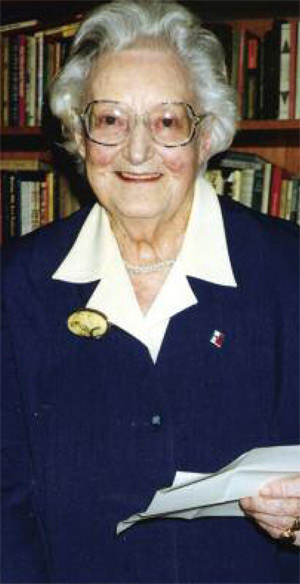
The modern-day hospice movement came into being in 1967 when Dame Cicely Saunders founded St Christopher’s House in London. However, hospice care goes back to the mid-1800s.
In 1843, as a young widower and bereaved mother, Mme Jeanne Garnier, along with others in a similar situation, founded the Dames de Calaire in Lyon, France, to provide care for the dying. At that time death was seen as a failure by the medical system and consequently the focus of hospitals was on curative treatment - the dying was not welcomed.
Between 1874 and 1899, twenty one years after her death, Jeanne Garnier’s influence led to the introduction of six more establishments in Paris and New York.
Thirty six years after the first hospice was founded, the idea spread to Ireland when it was adopted by The Irish Sisters of Charity who opened Our Lady's Hospice in Dublin. Shortly after, it spread to England when they opened St. Joseph's Hospice in Hackney, London.
However, hospices did not become more widely known until Dame Cicely Saunders founded St. Christopher's House in London in 1967. Dame Cicely had been a nurse, but was currently working as a medical social worker when she came upon a patient by the name of David Tasma in 1948 – a chance meeting which changed hospice care forever.
Dr Mary Baines is Emeritus Consultant in Palliative Medicine at St Christopher’s. Dr Baines worked with Dame Cicely at St Christopher’s in the pioneering days of palliative care. You can read about the revolutionary work of Dame Cicely Saunders and the emergence of modern-day hospice care here.
The modern-day hospice movement was born and with it came local, independent charitable hospices across the UK. Today there are more than 220 hospices.
National charitable organisations Marie Curie Cancer Care and The Sue Ryder Foundation also played an important role in the provision and ongoing development of care for the terminally ill, and their families. In the 1950s, 11 Marie Curie Homes were developed and the Sue Ryder Homes began to emerge in the 1970s. At the same time as Sue Ryder was establishing provision another household name entered the scene: Macmillan Cancer Relief – then known as the National Society for Cancer Relief. Macmillan’s provision took on a very different format to that of Marie Curie and Sue Ryder – they provided capital grants to units built within NHS hospital grounds with the then titled health authorities taking over responsibility of the running costs.
Since then, all three national charities and the local, independent charitable hospices have developed their services in line with patient needs and today, hospice care comes in many forms, all with the patient and their family at its heart.